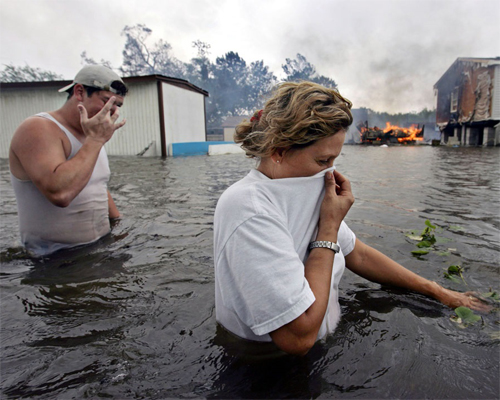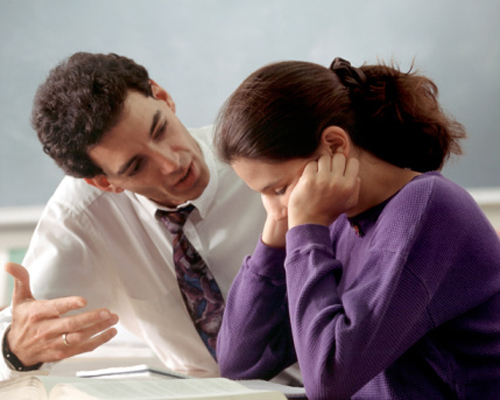
Fact Sheet FS701
A disaster of any type often leaves a trail of emotional destruction in its wake. The stress that follows a disaster can be debilitating. People's lives are thrown out of kilter. As steps are taken to restore any physical items that were lost like buildings and possessions, victims also need to take time to restore their sense of emotional balance and actively deal with their stress. Stress is a very real problem and needs to be taken seriously.
Symptoms of Stress
Stress often brings feelings of helplessness and anxiety. Other stress-related symptoms are exhaustion, lack of concentration, loss of appetite, nightmares, increased use of drugs or alcohol, anger, insomnia, restlessness, depression, or hyperactivity. Although common, these are serious problems that can develop after a major disaster. Reaction to stress may be so severe that a person develops Post Traumatic Stress Disorder (PTSD). PTSD is a psychological condition that can result from experiencing, witnessing, or participating in an overwhelmingly traumatic (frightening) event.
After experiencing a disaster, pay careful attention to your behavior and that of loved ones. Seek counseling assistance and support from local mental health providers as soon as any stress symptoms appear.
Coping
There are many positive steps to take to handle the stress following a disaster. One of the first things people can do for themselves and one another is to pull together as a community. In an emergency situation, it is critical to have a supportive network of family, friends, and neighbors. Some of the ways to lessen symptoms of emotional distress include:
- Ask for help.
- Reach out to help others.
- Eat healthy food when it is available.
- Get as much rest as possible.
- Be physically active. Walking can often help to ease the stress.
- Return to your daily routine.
- Talk about your feelings.
- Accept help from others.
- Participate in spiritual activity.
- Listen to others.
- Share common experiences.
- Think about what's important in the big picture and set your priorities.
- Use physical touch, if appropriate—hugs, hold a hand, sit close when talking.
- Be aware that many people cope with crisis by resorting to destructive behavior like drug and alcohol abuse. Get professional help if you feel drawn to these behaviors.
- Reassure one another, especially children. They will follow your lead and may need extra attention and comfort. Remind them that they are not responsible for the problems the family is facing.
- Give yourself time to heal.
Recovery
The reaction to stress caused by the disaster may continue for some time. Recovering from a disaster is a gradual process and may take longer than expected. Be patient with yourself. Each step no matter how small is a move toward recovery. Ongoing support for family members and friends is essential as families and communities work to pull their lives back together again. Counseling assistance and support from local mental health providers may be needed for many months.
Remain Hopeful
Helen Keller encourages us not to be without hope in the time of adversity, as she said, "All the world is full of suffering. It is also full of overcoming."
Hope helps us to overcome trouble and regain our emotional balance. Difficult situations bring us down, but they also help us to grow in ways we never imagined.
References
January 2014
Copyright © 2024 Rutgers, The State University of New Jersey. All rights reserved.
For more information: njaes.rutgers.edu.
Cooperating Agencies: Rutgers, The State University of New Jersey, U.S. Department of Agriculture, and Boards of County Commissioners. Rutgers Cooperative Extension, a unit of the Rutgers New Jersey Agricultural Experiment Station, is an equal opportunity program provider and employer.



